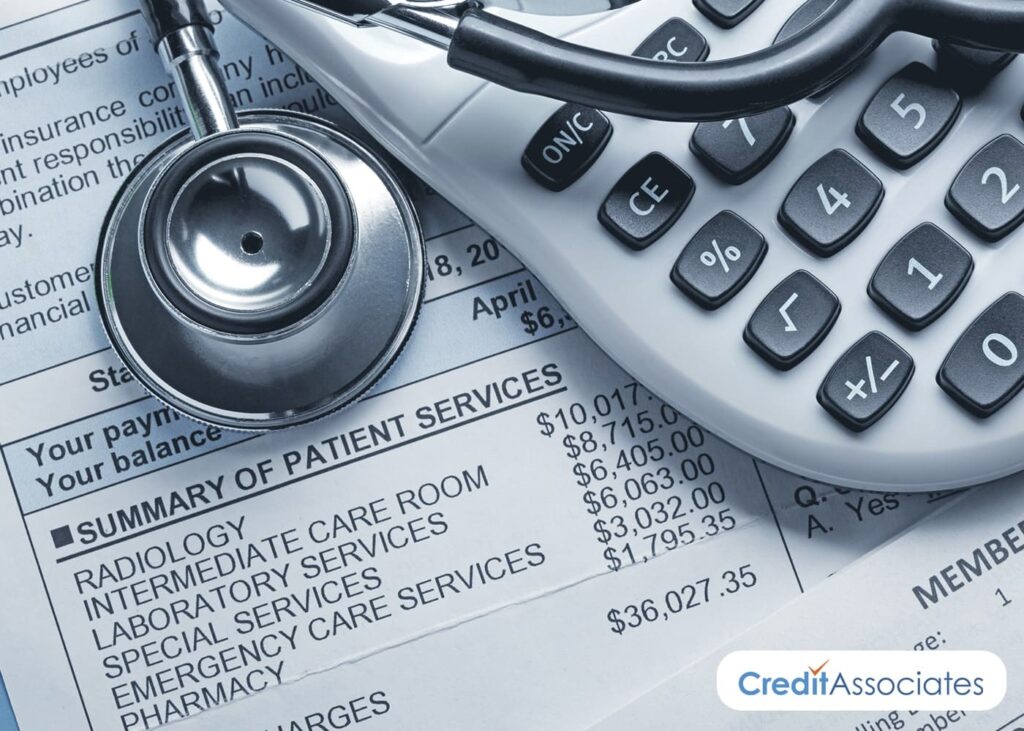What is medical debt and how does it differ from other types of debt?
Medical debt is incurred when an individual is unable to pay their medical expenses. This can include everything from hospital bills to prescriptions. Unlike other types of debt, medical debt is often unexpected and can be very difficult to pay off. As a result, it can have a major impact on an individual’s financial stability.
There are a number of organizations that provide assistance to those with medical debt, but it is still a major problem for many people. Medical debt is often one of the leading causes of bankruptcy in the United States.
How does medical debt affect your credit score and overall credit rating?
Medical debt is one of the most common types of debt in the United States, and it can have a major impact on your credit score and credit rating. Medical debt is treated differently than other types of debt, and it’s important to understand how it can affect your credit.
First, medical debt does not have to be reported to the credit bureaus, so it will not appear on your credit report. However, if you have unpaid medical bills, your creditors may report the debt to the credit bureaus, which will then appear on your report.
Medical debt also has a different statute of limitations than other types of debt, which means that creditors can try to collect on the debt for a longer period of time. Additionally, medical debt is often sold to third-party collectors, who may also report the debt to credit bureaus. As a result, medical debt can have a significant impact on your credit score and credit rating.
What are some steps you can take to reduce or eliminate medical debt?
If you’re struggling with medical debt, you’re not alone. According to a recent study, over 40% of Americans have difficulty paying their medical bills. Medical debt can be especially crushing because it’s often unexpected and unavoidable. However, there are steps you can take to reduce or eliminate your medical debt.
One option is to negotiate with your medical providers or creditor. If you’re able to pay a lump sum, you may be able to get a discount on your bill. You can also ask about payment plans or financial assistance programs. Another option is to use a medical billing advocate. These professionals can help you understand your bill and negotiate with your provider on your behalf. Finally, if you have private health insurance, you may be able to appeal an unfair denial of coverage.
By taking some proactive steps, you can take control of your medical debt and start working toward a brighter future.
How long does medical debt stay on your credit report?
Medical debt can stay on your credit report for up to seven years. However, there are a few things you can do to help improve your credit score. First, make sure you keep up with your payments. If you’re able to pay off your debt in full, that will show creditors that you’re a responsible borrower.
You can also try negotiated settlements with your creditors. This involves paying off your debt for less than the full amount. Creditors may be willing to work with you if you can show them that you’re trying to make a good-faith effort to pay off your debt. Finally, if you have medical debt that’s been unpaid for more than six months, you may be able to have it removed from your credit report.
What should you do if you’re struggling with medical bills?
One of the most difficult things about dealing with a medical condition is managing the costs. Medical bills can quickly become overwhelming, and it can be hard to know where to turn for help. If you’re struggling to keep up with your medical bills, there are a few things you can do. Make sure you’re aware of all the costs involved, including treatment fees, costs for medication, transportation, and lost wages. Once you have a clear picture of your expenses, you can start looking for ways to reduce them.
Many hospitals offer financial assistance programs for low-income patients, and there are also government programs that can help with the cost of medical care. If you’re still struggling to make ends meet, consider contacting a nonprofit organization that specializes in assisting patients with medical bills. With a little bit of effort, you should be able to find the resources you need to get your medical bills under control.
Medical debt is a common issue that many people face. It’s important to understand how medical debt works and how it can affect your credit score and overall financial health. There are steps you can take to reduce or eliminate medical debt, but it’s also important to know what to do if you’re struggling with medical bills. If you’re facing medical debt, don’t hesitate to reach out for help. There are resources available to assist you in managing and paying off your debts.
CreditAssociates Can Help You Navigate Your Medical Debt
Navigating medical debt can be a complicated and overwhelming process. That’s why many people turn to companies, like CreditAssociates, for help. CreditAssociates provides personalized support to clients who are navigating the complexities of all types of debt. Our counselors provide advice on how to resolve your debt for less than you owe. Head over to our website to learn more and start the journey to clearing your debt.
